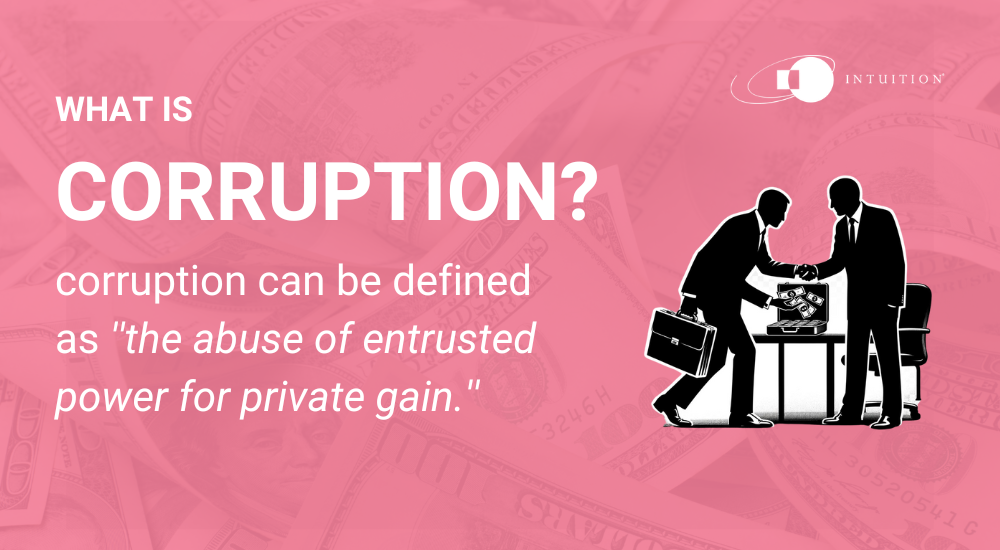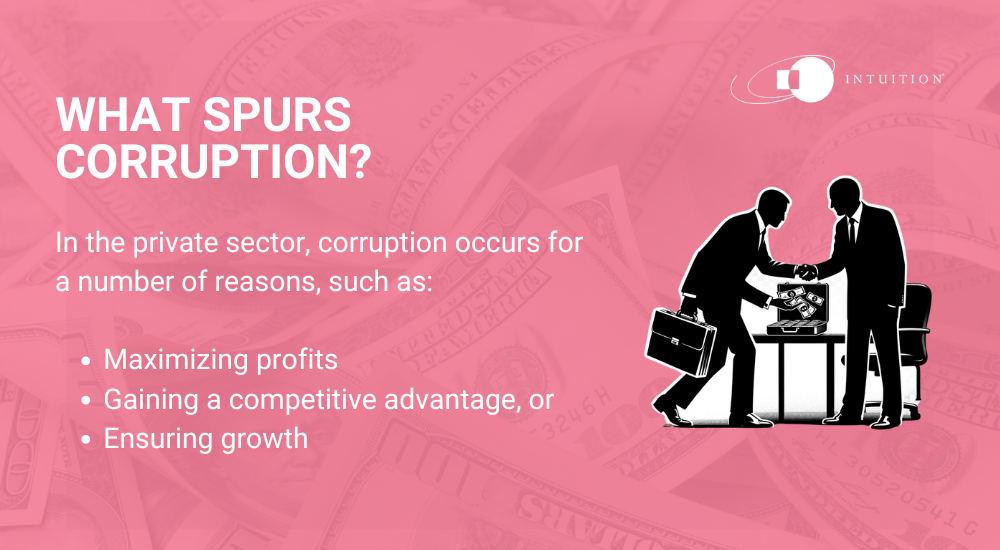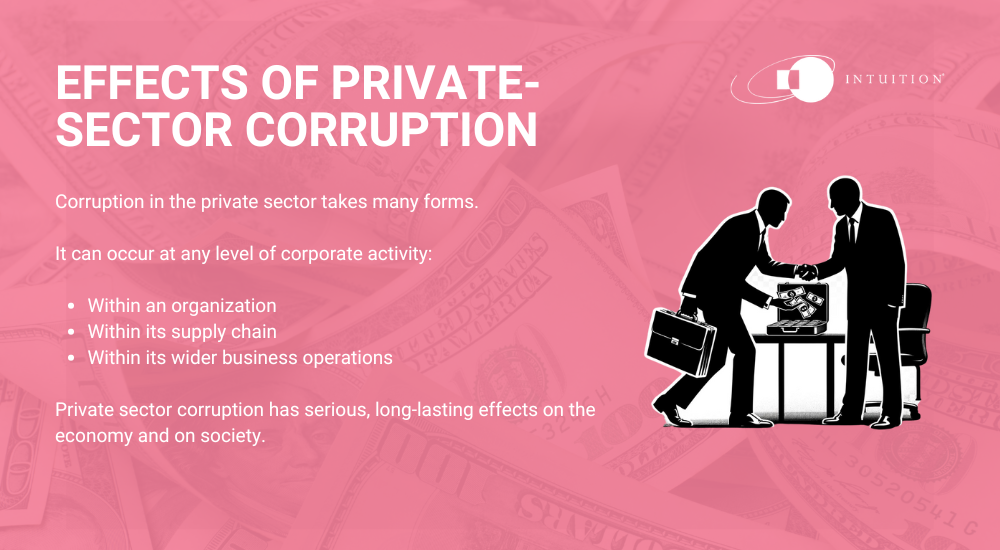Corruption explained: Different forms and effects
Transparency International, a global movement working in more than 100 countries for greater integrity in public life, defines corruption as ”the abuse of entrusted power for private gain.”
When individuals and organizations promote interests other than the ones they are entrusted to serve, the result is corruption. It occurs in both the public and private sector.
Public officials are entrusted with power to serve the public interest.
Corruption in the public sector can redirect funds from vital infrastructure such as hospitals, schools, and roads.
This loss is felt most severely in developing countries, but it is also felt in developed countries, where large sums can be lost through more subtle forms of corruption.
Private sector employees are entrusted with power to serve the legitimate interests of their organization.
Corruption in the private sector undermines competition, drives up prices, and lowers the overall quality of goods and services. Ultimately, it harms the consumer.
The effects of private sector corruption on the public are exacerbated when governments outsource functions such as healthcare and transport to the private sector.
Corruption creates new inequalities in society and perpetuates existing ones.
Among other things, it:
- Enables a country’s elites to exert undue political influence
- Directs public resources for the benefit of special-interest groups, and
- Weakens the rule of law and the principle of equality before the law
To hold the corrupt to account, we need to know how corruption works and understand the systems that enable it.
Related articles:

Corruption in the private sector
In the private sector, corruption occurs for a number of reasons, such as:
- Maximizing profits
- Gaining a competitive advantage, or
- Ensuring growth
Where markets are driven by intense competition, organizations might engage in corruption to increase their operational efficiency or conquer new markets.
When organizations within a particular sector use corrupt practices to gain a competitive advantage, other organizations in the sector are emboldened to engage in similar practices to remain competitive.
Corruption can appear to be a workable and effective business practice, and it can become institutionalized to achieve strategic objectives.
Corruption becomes systemic, an accepted way of doing business.
Over time, it distorts markets and undermines competition.
However, a culture of corruption is rarely sustainable because a corrupt organization will become unattractive to ethical employees, investors, clients, and other stakeholders.

Effects of private-sector corruption
Corruption in the private sector takes many forms. It can occur at any level of corporate activity:
- Within an organization
- Within its supply chain
- Within its wider business operations
Private sector corruption has serious, long-lasting effects on the economy and on society.
Societal impact
Corruption can have a devastating effect on the environment and society in general.
Monied interests have derailed legislative efforts to address climate change in the US.
Funded by major oil conglomerates and representing around 600 drilling companies, refiners, and other interests such as plastics manufacturers, the American Petroleum Institute (API) is one of the most powerful trade organizations in the USA. Some politicians claim the API’s main aim is to set major obstacles to new climate policies and legislation.
While oil companies run publicity campaigns that claim they are taking the climate emergency seriously, the trade group works behind the scenes in Congress to stall or weaken environmental legislation.
Given the power of the fossil fuels and automotive industries over governments, this analysis almost certainly applies to many other countries.

Unfair competition
Corruption undermines competition.
An organization that pays bribes will have an unfair advantage over an organization that does not.
Organizations that do not pay bribes may be excluded from certain markets.
Consumer harm
Corruption can lead to noncompetitive markets. This, in turn, can lead to higher prices and poorer quality goods and services, which ultimately harms the consumer.
What are the different forms of corruption?
Bribery
Bribery is offering or soliciting an inducement to influence how someone in an appointed position discharges their duties.
Inducements take many forms including money, gifts, loans, fees, rewards, or other advantages.
There are two forms of bribery:
- Active – Offering, promising, or paying a bribe
- Passive – Soliciting, agreeing to receive, or accepting a bribe
Bribes are often made through an intermediary to make their detection more difficult.
Both forms of bribery are of concern to all organizations and are illegal in most countries and territories.
Grease payments
A grease payment, or facilitation payment, is a payment to a foreign official to expedite a routine duty, such as processing papers or issuing licenses and permits.
The payments are not intended to influence the actions of an official, only their timing.
Grease payments – which are common in a number of countries and territories – are not always illegal.
Graft
Graft is a form of political corruption in which a politician uses their power and influence unscrupulously for personal gain.
For example, a politician might misappropriate government funds directly or they could use inside knowledge of upcoming government decisions to benefit their own private economic interests.
Trading of information
Trading of information is when an employee offers or receives a bribe in exchange for confidential information.
This offense is known as insider trading when confidential information is the basis for trading in an organization’s stock, bonds, or other securities.
Trading in influence
Trading in influence – which is also referred to as influence peddling – is the practice of using a person’s influence in government or connections with authorities to obtain an undue advantage for another, usually in return for payment.
Gifts and hospitality
Almost every organization engages in some form of hospitality with existing or potential business partners, and this is recognized as an established and important part of doing business.
However, gifts and hospitality may be considered bribes where they are not transparent or are unreasonably lavish.


